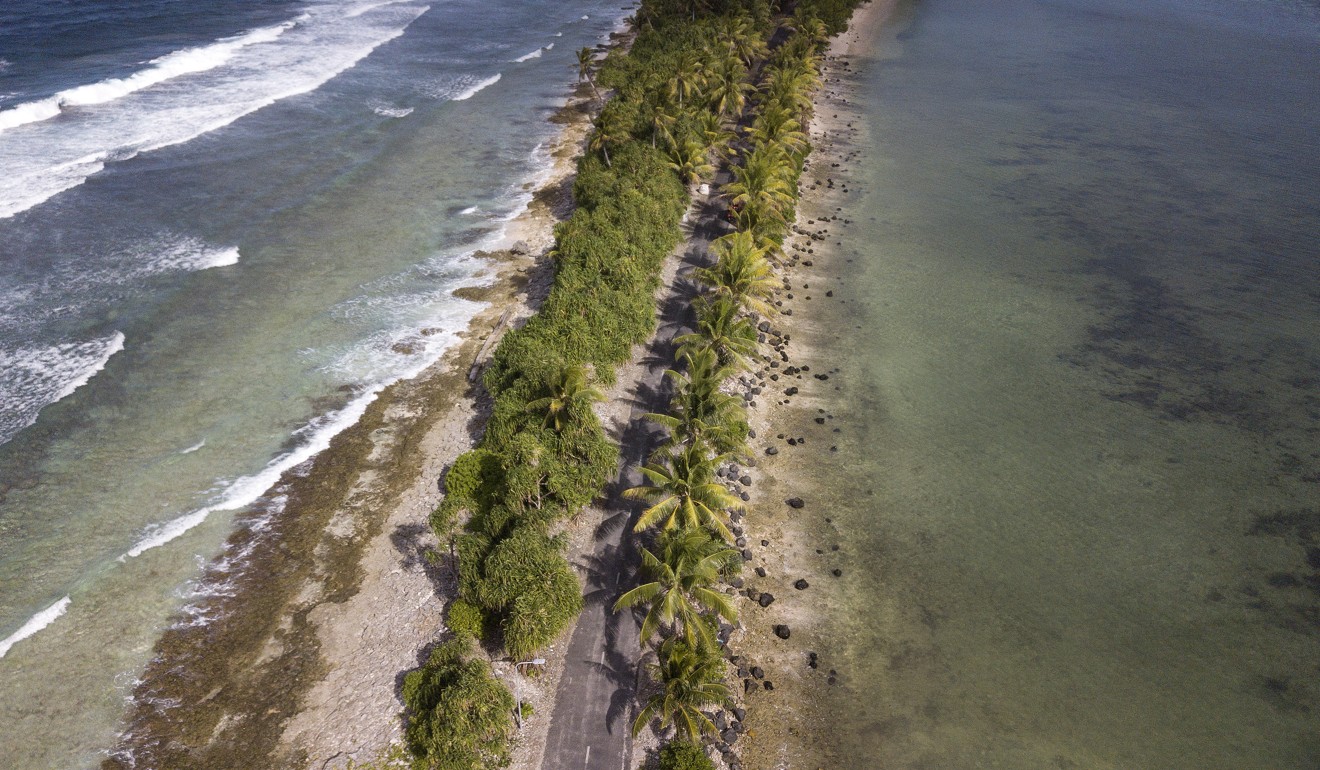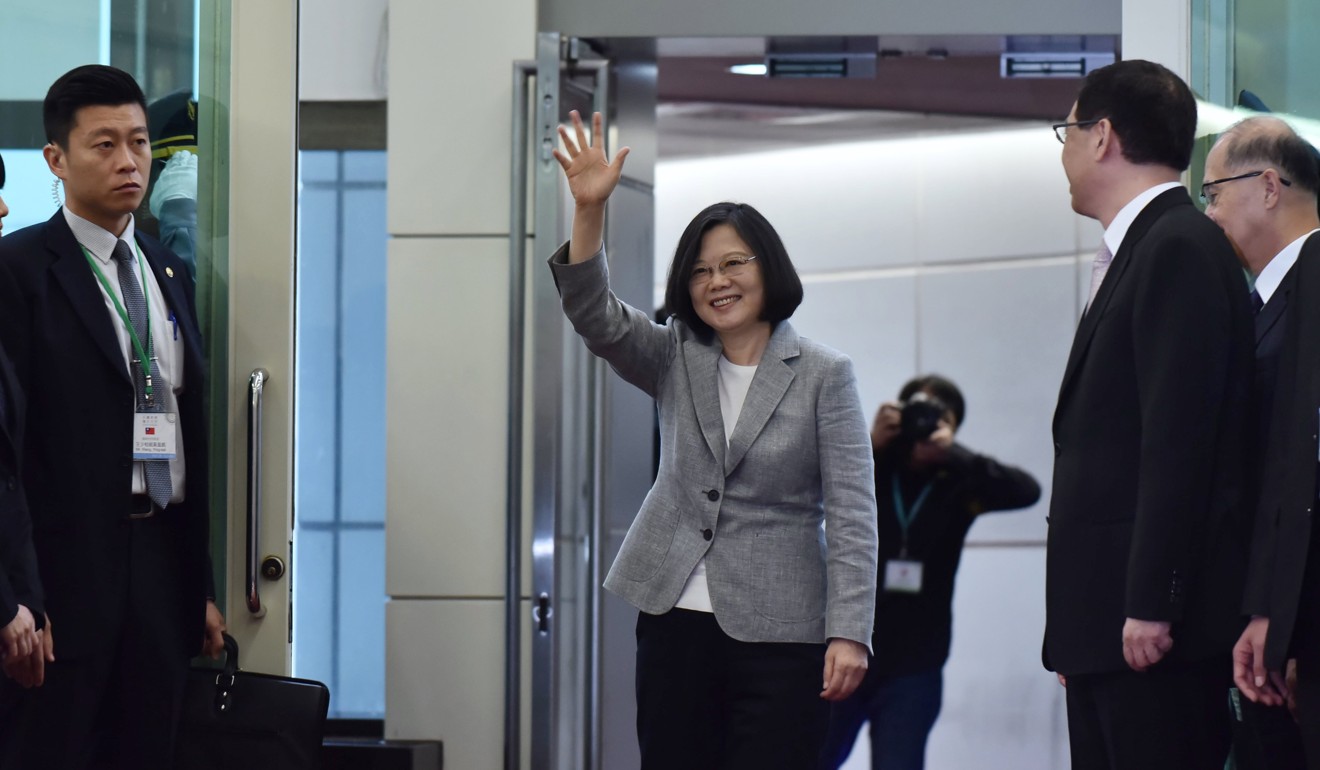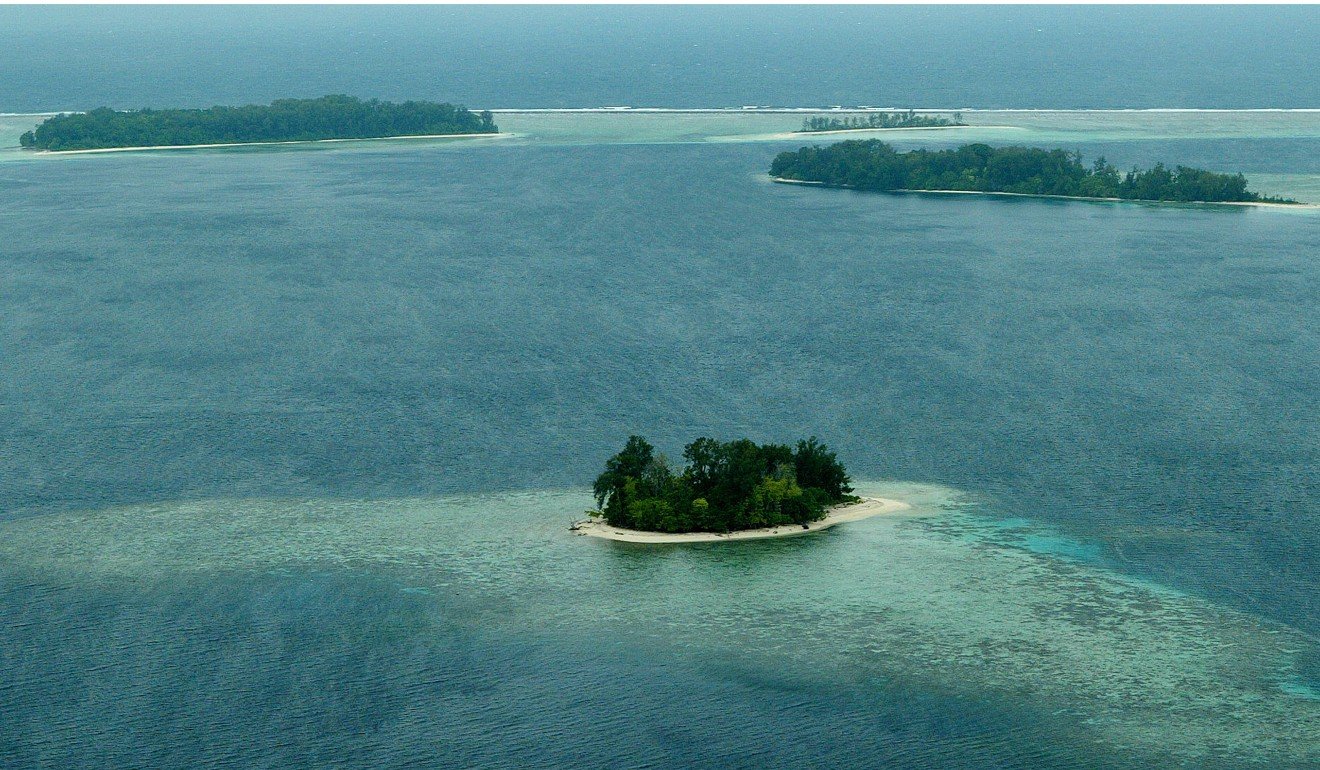
Tuvalu rejects Chinese firms’ offer to build islands, stands with Taiwan
- Relations between Pacific nation and Taipei ‘strongest they’ve ever been’, Foreign Minister Simon Kofe says
- Country is working to set up a group to unite Taiwan’s remaining allies in Pacific, he says
Tuvalu has rejected offers from mainland Chinese companies to build artificial islands to help it cope with rising sea levels, an approach viewed as undermining Taiwan’s influence in the region, the South Pacific nation said on Thursday.
“Tuvalu and Taiwan diplomatic ties are the strongest they’ve ever been,” he said in Taipei.
“Together with our partners, we will be able to counter the influence from mainland China.”

Beijing has in recent months stepped up a campaign to peel away more allies of Taiwan, which Beijing considers its territory and therefore ineligible for state-to-state relations.
Taiwan said Kiribati was lured by Beijing with the promise of planes, while the Solomons was offered development funds.

Kofe said mainland Chinese companies had recently approached local communities to help support a US$400 million government plan to build artificial islands, saying he believed the companies were backed by the Chinese government.
“It’s a no from us,” Kofe said. “We are hearing a lot of information about debt, China buying our islands and looking at setting up military bases in our part of the world. Those are things that are concerning to us.”
“We hope those are lessons for other countries to be careful and be conscious of the negative impacts … It’s not good for our Pacific fellow brothers and sisters.”

China’s moves to expand its influence in the Pacific have alarmed the United States and its allies, including Japan, Australia and New Zealand. The group has dominated the strategic waters of the small developing nations since World War Two and are pushing back against Beijing.
The premier of the Solomon’s Malaita province said on Thursday that the US and its regional allies had pledged to develop a deep-sea port and would be invited to patrol its territory, creating a beachhead against increased investment from Beijing.

